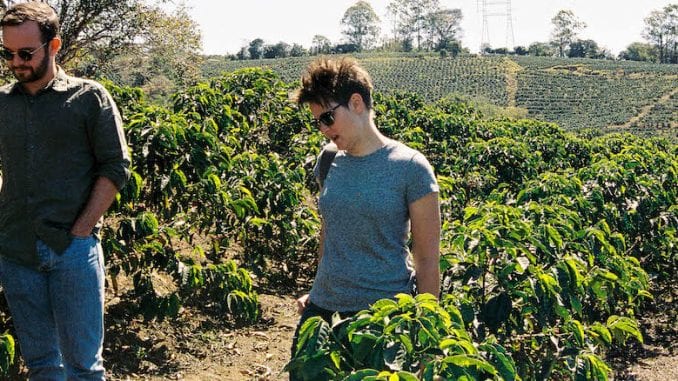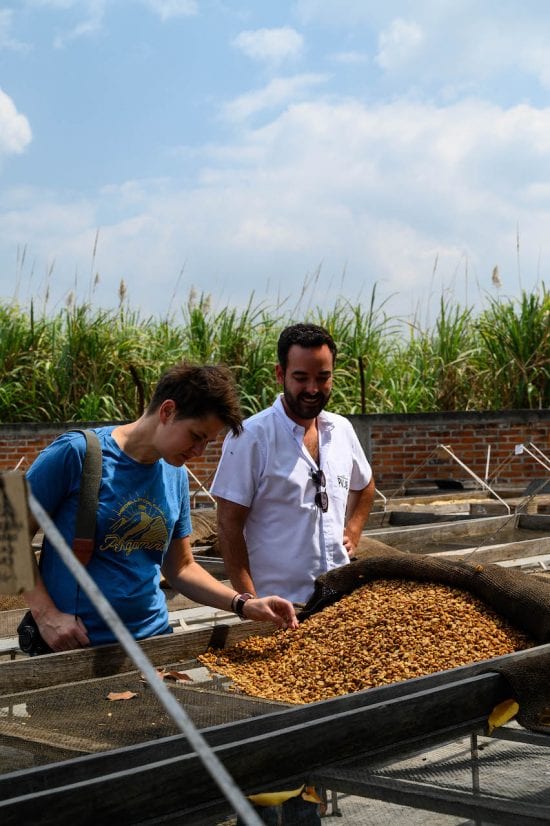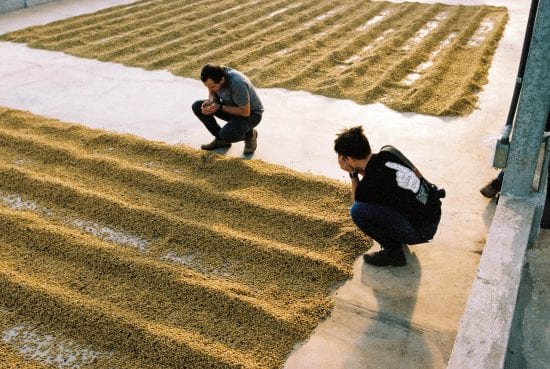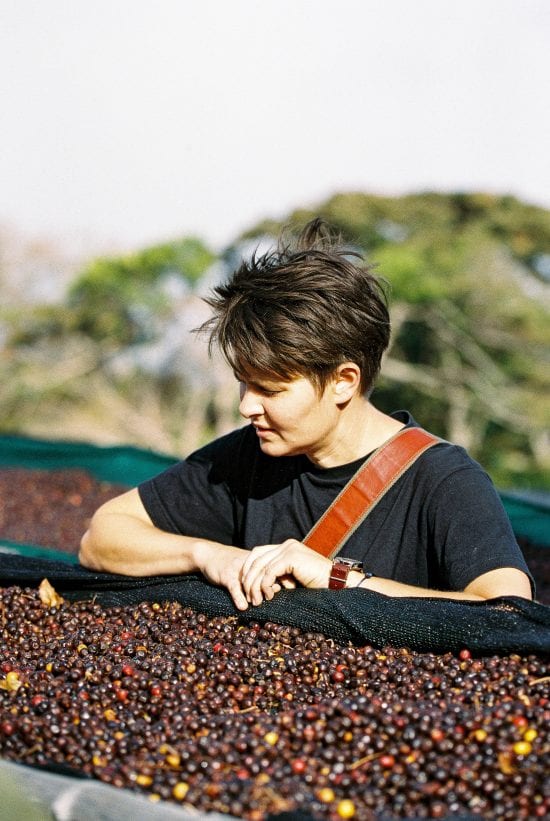
We continue our conversation with ST.ALi green coffee buyer Lucy Ward to discuss sourcing challenges and much more.
BY CHRIS RYAN
BARISTA MAGAZINE ONLINE
Photos by Tayt Bale
Since 2012, Lucy Ward has been buying green coffee for some of Australia’s top specialty-coffee roasters—first Proud Mary Coffee, and now roaster-retailer ST.ALi, where she is the company’s sole green buyer. In part one of our interview with Lucy on Friday, we discussed how she got interested in specialty coffee and her green-buying principles. Today, we conclude our interview by discussing her current duties at ST.ALi, life as a coffee buyer, and some of the challenging and rewarding elements of working in specialty coffee.
Chris Ryan: What does your role as green buyer at ST.ALi entail beyond sourcing coffee?
Lucy Ward: My daily life is not just sourcing great coffee, but also helping to make sure we can sell it. It is all part and parcel of the buyer’s role. Once I have found great coffee and bought it, I need to talk to the marketing team and get involved with how we will campaign the coffee. As “keeper of the knowledge” and “storyteller,” so to speak, this is super important, I also really enjoy having a part in that vision as well.
One of my other jobs is a game I like to call “coffee tetris”; I spend A LOT of time working out what coffee goes where and when and for who. It is kind of like being a curator in a way. I am also involved in daily production cupping and commentary, making sure all the coffee is presenting the way I want it to. And then after all of that is said and done, I need to educate staff on what coffee is coming out, why I love it and, often, how to taste it or use it properly. Finally, I seem to always have a new product I am working on in the background, finding new ways of using our coffee, so this includes things like instant coffee and new blends. That is the fun R&D kind of stuff we all love getting to do.

You’ve also been sourcing coffee for ST.ALi’s coffee competitors for the upcoming season; can you tell me about the process of finding special coffees for competition?
I love shopping for competition coffees! When you are buying for competition, you are looking for something with tons of back-story and a super-distinct profile. I have judged the Barista competition and Brewers Cup a few times before, so I think about the scoresheets when I am cupping my selections. Will it hit those multiplier boxes?
I never really know who I am buying for in comp season because I have to start so early, and entry into the competitions in Australia is very competitive. Often our wholesale clients look to me for a little help as well. So I buy a few different coffees each year and have a pool they can choose from that suits their style.

You’ve been a green coffee buyer for about seven years. I know it’s a job that takes a lot of commitment and energy with all the travel—what’s challenging about the job, and what’s rewarding?
Every job in the world has challenges, but because coffee is intimately linked to emotions, sometimes these challenges can feel almost like a personal attack. I could just talk about the challenges of juggling shipping dates or forecasting and all the admin side of it, but let’s be honest, that is just a part of the job. But when consumers fail to see value in the specialty-coffee sector and opt to buy the most economic option for them … I see that as a personal challenge.
This is a frustration that drives me daily to try and disrupt the status quo and rethink everything we do in coffee, because what we are doing now is not as effective as we need it to be. I feel the weight of that responsibility as a buyer to drive consumers to be thoughtful in their consumption. With the Australian market in the position it is today, with a plummeting dollar and a rapid movement away from retail spending, the challenge is urgent. It is about keeping people engaged with our sector; we need to switch our thinking, and find what consumers consider to be real value, not real quality.
As I said before, though, the rewards are rich and many. The greatest reward is the huge number of friendships I have formed. My life is so much richer for having met people from all over the world that have come into my inner circle whom I can have a drink with and talk about everything but coffee. Coffee, after all, is about people and not the coffee at all.
Traveling is of course rewarding, and I have experienced so many things I would never have done without this job. Seeing the countryside of all the places I go to is amazing, but the travel is challenging too. Dusty days spent in a car on a rough dirt road, basic hotels with electrified showers, heavy meals of meat and carbohydrates when all you want is a salad, and all the rest of it. Some days it feels never-ending.
Green buying has historically been a male-dominated field; can you describe what it means to you to be excelling in roles that were (and still are) male-dominated?
Green buying is still one of those parts of the industry where I am nearly always the only woman in the room. This gender bias is I think in part because people normally get started in these roles not necessarily because of merit and skill but because they put up their hand at the right time in the right place.
For me to be in this role not just as a woman but as an LGBTQI+ woman is a real honour, and I really hope me being here encourages others to follow in my footsteps and makes the path just a little bit easier. Role models and visibility are absolutely key in changing gender diversity; if no one sees women like me doing this job, then no one will believe that we can.

Australia’s coffee culture—and Melbourne’s in particular—is among the world’s leaders. How would you describe this scene in 2019, and the evolution you’ve seen over your time in coffee there?
The changes I have seen in this industry are vast; it has been a total evolution. In the beginning, specialty coffee in Melbourne was subversive; we were pushing the boundaries and challenging status quo because we were sick of this culture our parents had built, drinking instant coffee or badly made Italian espresso. It was not just coffee in general we were challenging but how it was drunk, served, and talked about. I really think Melbourne was at the centre of this avant-garde movement that has now spread through the world.
In the here and now, it is a mature market. We have really become professional in our approach; in the beginning we were up for trying anything to be different. We would do crazy stuff back then. Now we are much more honed in on not just what we want, but our customers too—after all, we do need to remain a viable business. The more mature Australia is a place where we are experimenting in controlled environments, companies are going global, and knowledge has become the most valuable economy we have.
Finally, can you tell us a bit about what you enjoy doing outside of the coffee world?
What do you mean outside of coffee?
Seriously though, I just honestly enjoy simple, quiet stuff like riding my bike, being outside in the sun, cooking a meal for friends, and, when I have time, getting creative in some way.


